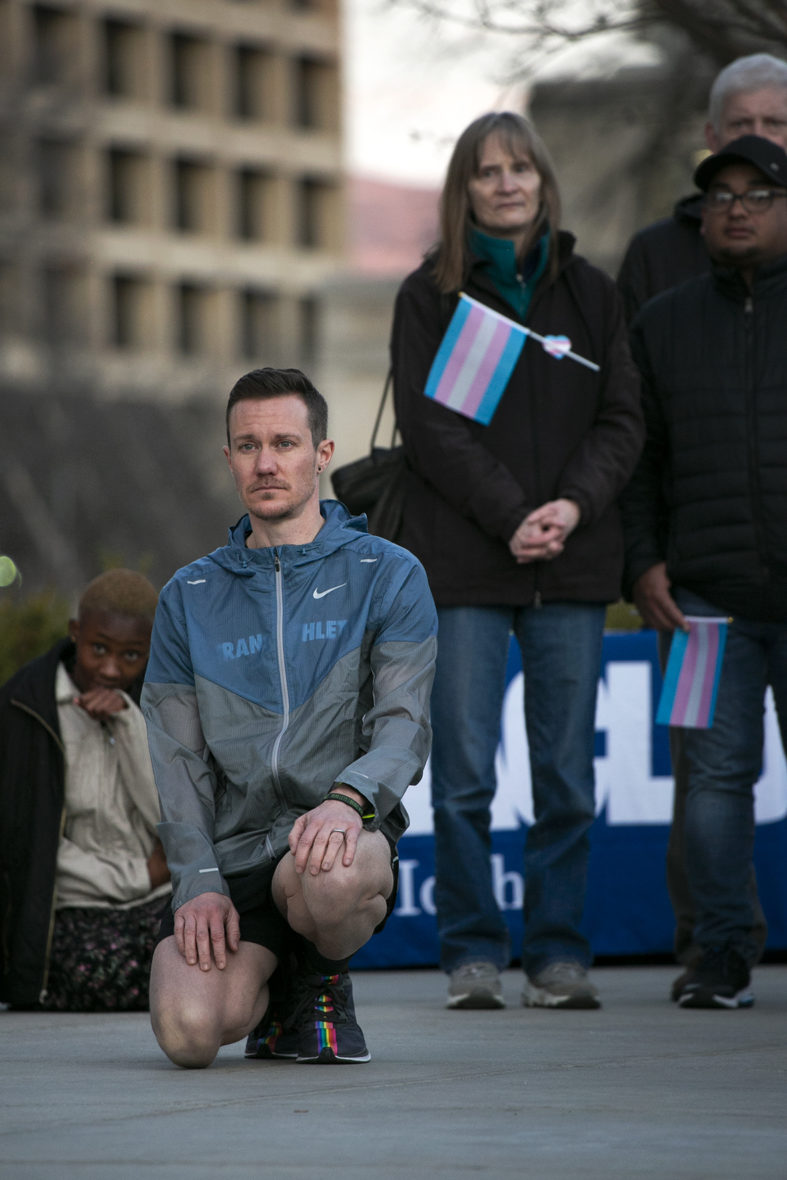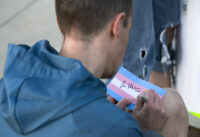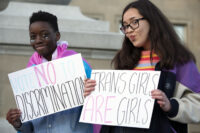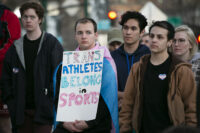
Percephone Bias tried out for the middle school cheerleading team as a boy, and made it.
In high school, Bias tried out for cheerleading as a girl. She made the team again.
Bias, an 18-year-old transgender woman and a senior at Boise’s Borah High School, joined more than a hundred people who marched down Capitol Boulevard to the Statehouse on Tuesday evening, to stand up against proposed legislation that would limit the rights of transgender athletes and Idahoans.
House Bill 500, a proposal from Rep. Barbara Ehardt called the Fairness In Women’s Sports Act, would ban transgender women like Bias from competing in women’s sports. Ehardt says the bill would protect women in sports by ensuring they don’t have to compete against transgender women who, she argues, could have a physical advantage. The bill passed in the House of Representatives last week.
For Bias, sports was never about beating other girls.
“What sports gave me was a sense of community. It was never about trying to beat somebody else or using a special advantage against other people,” Bias told EdNews in an interview. “To take that sense of community and that sense of belonging and assimilation away from trans kids who just want to feel like their peers is unnecessary.”
Following a walk from the Anne Frank Human Rights Memorial near downtown to the Capitol, athletes and activists like Bias, State Rep. Muffy Davis and Transgender Team USA athlete Chris Mosier decried HB 500.
“Assuming a person would be trans to win at sports is like saying a person would break their back to win a Paralympic medal,” said Davis, who is a seven-time Paralympic medalist. “It’s insane and not even conceivable.”
Mosier, an internationally known transgender athlete and activist, flew to Boise from Chicago for the event.

In 2015 Mosier became the first openly transgender athlete to join a U.S. National team different from his sex at birth when he made the Team USA duathlon team. The next year he helped change the International Olympic Committee’s rules regarding transgender athletes when he challenged a policy that required trans athletes to have gender-reassignment surgery to compete.
As the sun set on the Statehouse, Mosier told the crowd that Ehardt’s bill is “the worst in the country attacking transgender student athletes.”
He applauded the work Idaho’s activists have done this year by repeatedly rallying and testifying against Ehardt’s bill and other proposals that would limit the rights of transgender Idahoans.
“I look out at the crowd and I see people who are in it to win it, am I right?” Mosier asked, to cheers from the crowd. “I also see people who are a little fatigued, and a little tired. I’m here to tell you that from Chicago and across the country, you have people who have your back.”
(Click a photo for full size gallery.)









